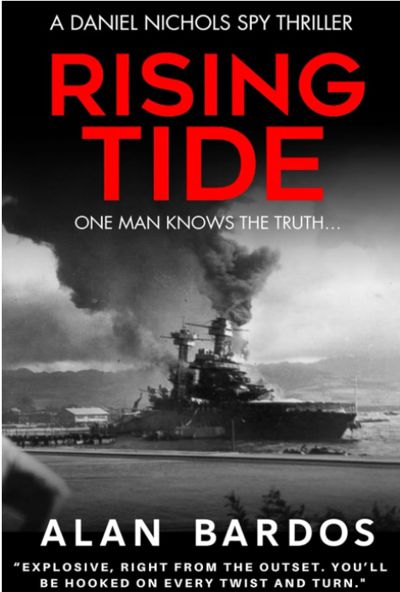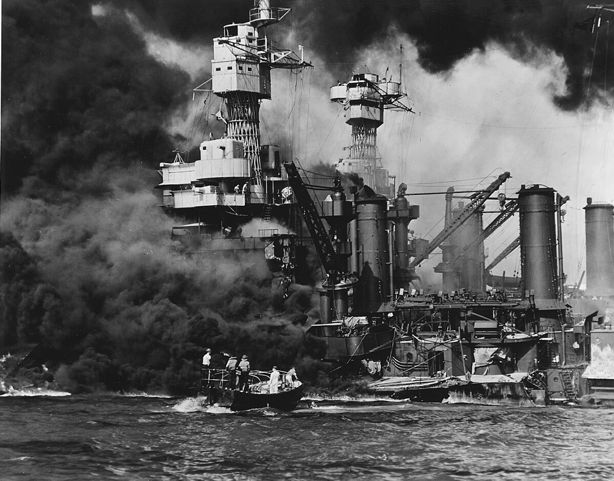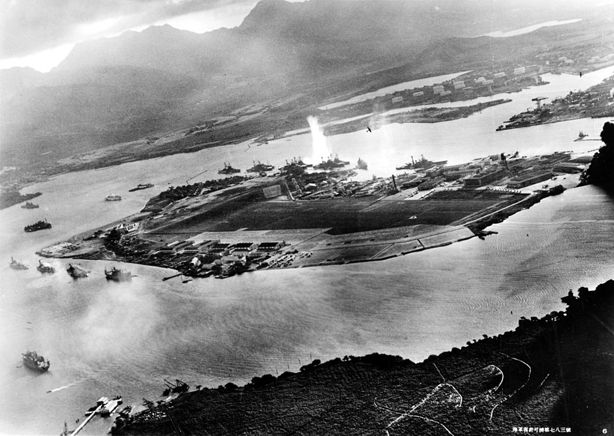
November 1940.
Lieutenant Daniel Nichols, a former pacifist turned crusader, is wounded taking part in the Royal Navy’s carrier born air raid on the Italian Battle Fleet in Taranto.
Six months later Sándor Braun, a British double agent, escorts a Japanese delegation around Taranto and discovers that they are planning a similar attack. But what will the target be?
Nichols, now unable to fly, joins the Naval Intelligence Division, despite growing rumours that his nerve has gone. He debriefs Braun in London and sees the implications of his discovery. Britain cannot afford to suffer further setbacks in the far East.
Nichols convinces his superior officer, Ian Fleming, to allow him to travel to Lisbon in a bid to identify the target before it’s too late. The former airman uses the rumours about his lack of moral fibre as cover and poses as a deserter, with information to sell about the Taranto raid.
Braun helps Nichols to gain the confidence of German and Japanese Intelligence officers – and he is recruited to fly to Hawaii and spy on the US Navy.
Convinced that the Japanese plan to attack Pearl Harbour, Nichols travels to America to inform the FBI, but his warnings fall on deaf ears.
Nichols takes matters into his own hands and ventures to Hawaii, with the intention of preventing a catastrophe.
But will the Englishman’s intervention prove too little, too late?

How decisive was the attack on Pearl Harbour?
The Japanese surprise attack on Hawaii in 1941 achieved its initial goal of knocking out the US Pacific Fleet, but how decisive was it? Could the Pacific War have been ended before it even started?
Japan’s objective behind the attack on Pearl Harbour was to secure their flank and prevent the USA from responding when they invaded Southeast Asia. The Japanese hoped that by the time America had recovered from the airstrike they would have consolidated their territorial gains and could force a stalemate. The Japanese also hoped that by destroying the US Fleet they would land a psychological blow that would destroy the willingness of an isolationist America to fight. Also, with America’s resources stretched between the Pacific and commitments in Europe the Japanese thought the Americans would make peace, rather than enter into a drawn out attritional war with Japan.
The Japanese clearly underestimated the willingness of America to fight and their industrial might. However, the attack on Pearl Harbour itself was not as decisive a blow as it could have been. In two waves of 353 aircraft, the Japanese destroyed the USS Arizona and USS Oklahoma and six other battleships were damaged to varying degrees.
Many of the torpedo strikes were against the USS Oklahoma and the USS West Virginia, which took enough hits to be sunk twice; while the USS Nevada and USS California could have been finished off, had the attack been more evenly spread across the whole fleet. This was largely due to the ferocity of the American antiaircraft fire, which forced the Japanese pilots to go for ‘easy’ targets. The shallowness of Pearl Harbour also meant that the ships did not completely sink, but rested on the bottom with their superstructure above the surface. This meant that the six damaged battleships were eventually repaired and returned to service.
Had the Japanese launched a third wave they would have bombed Pearl Harbour’s dockyard facilities, severely limiting the US Navy’s ability to repair the damaged battleships. A third wave would have also destroyed the Pacific Fleet’s oil reserves which were used to fuel the ships that turned the tide in the Pacific war at the Battle of Midway.
Some historians have disputed how decisive this would have been as the oil could have been easily resupplied from America. Admiral Nimitz, the man on the spot, said Hawaii would have been indefensible without the oil reserves and in the face of a possible invasion, it would have been evacuated. The US Navy’s code breaking unit was based at Pearl Harbour; their work gave the Americans the edge at Midway and may also have been impacted had a third wave been launched. Most decisively the Japanese missed the American aircraft carriers which were not at harbour when they attacked.

The Japanese had been informed by their spy on the ground Takeo Yoshikawa that the carriers were not in Pearl. The Japanese Fleet commander, Admiral Nagumo, decided the risk of discovery was too great if they delayed the attack, until the aircraft carriers returned. He also felt launching a third wave was too great a risk in light of the increased antiaircraft fire and a possible American counter strike. A decision that is still hotly debated, along with Nagumo’s decision not to hunt down the carrier USS Enterprise, which returned to Pearl Harbour after the attack. Had the Enterprise been sunk, it would have been a decisive blow to the Americans ability to wage the Pacific War.
The decisions taken in the wake of the attack therefore allowed the Americans to regain the initiative in the Pacific at Midway and meant the Japanese failed in their long term goal of forcing a stalemate. To quote Admiral Yamamoto, the mastermind behind the Pearl Harbour attack, ‘I fear all we have done is to awaken a sleeping giant and fill him with a terrible resolve.’
Amazon US: https://www.amazon.com/Rising-Tide-Daniel-Nichols-Thrillers/dp/B0CQ4V1DLL/
Amazon UK: https://www.amazon.co.uk/dp/B0CP4J1SZR
Meet Alan Bardos

Writing historical fiction combines the first great love of Alan Bardos’ life, making up stories, with the second, researching historical events and characters. He currently lives in Oxfordshire with his wife… the other great love of his life.
There is still a great deal of mystery and debate surrounding many of the events of the First World War, which he explores in his Johnny Swift historical fiction series. The series starts with the pivotal event of the twentieth century, the Assassination of Archduke Franz Ferdinand. The second book ‘The Dardanelles Conspiracy’ is based on an attempt by Naval Intelligence to bribe Turkey out of the First World War. In the third book ‘Enemies and Allies’ Johnny is employed as a useful idiot to flush out a traitor working to undermine the Allies.
His new World War 2 series follows Daniel Nichols, a former pacifist turned crusader, as he moves from the Fleet Air Arm to Intelligence and Special Operations. The first book ‘Rising Tide’ is set against the backdrop of the Japanese attack on Pearl Harbor; as Nichols is embroiled in a conspiracy to keep the USA bogged down in the Pacific and out of the war in Europe.
Connect with Alan
Twitter https://twitter.com/BardosAlan
Goodreads https://www.goodreads.com/author/show/15142092.Alan_Bardos
YouTube Channel https://m.youtube.com/channel/UCVOmjSYz2Eg7ChVFN3ygS5Q
Instagram https://www.instagram.com/alanbardos
Facebook https://www.facebook.com/AlanBardosWriter/